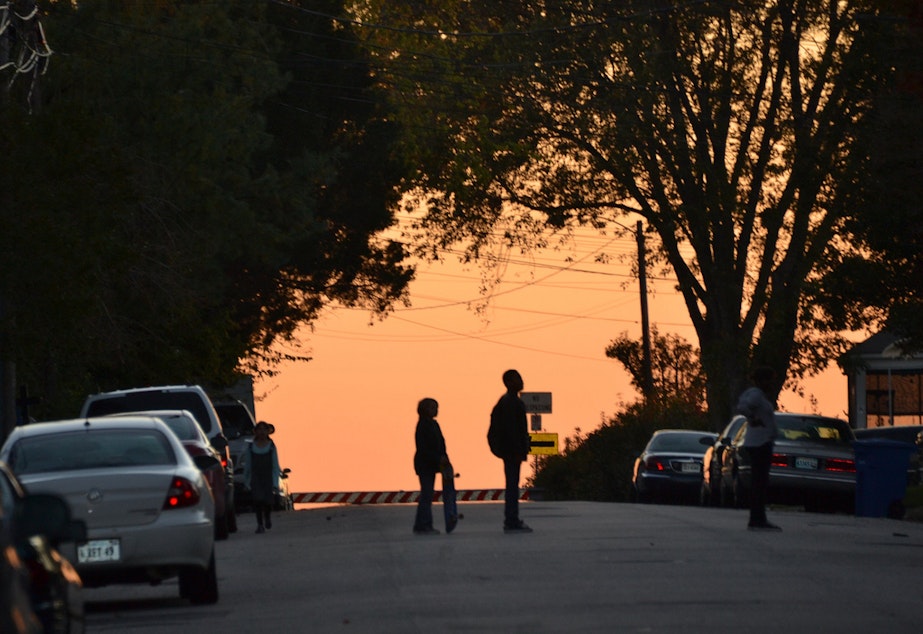You played outside unsupervised until dark. Why can't you let your kids?

When Lenore Skenazy’s son was 9, she left him in Bloomingdale’s in New York City. She gave him a Metro card and a $20 bill and said they’d meet at home.
Her son wanted more independence, and she took a chance. On her blog, freerangekids.com, she wrote:
I trusted him to figure out that he should take the Lexington Avenue subway down, and the 34th Street crosstown bus home. If he couldn’t do that, I trusted him to ask a stranger. And then I even trusted that stranger not to think, “Gee, I was about to catch my train home, but now I think I’ll abduct this adorable child instead.”
Her post touched a nerve; some argued she had put her son at risk. Others cheered her on.
Skenazy spoke with KUOW’s Bill Radke about the concept of free-range kids.
Sponsored
"What we hope our kids get is an ability to roll with some punches, get along with each other, come up with something to do when they're bored, empathize with somebody else – all that stuff happens when kids are unsupervised,” Skenazy said.
"But aren't you also saying that therefore we have this generation of paralyzed, inflexible, fluttering-like-a-leaf scaredy cat kids?” Radke countered. “Don't kids just roll with whatever their generation is doing and they figure out how to figure things out?"
Skenazy said she doesn’t want to be another person offering prescriptive parenting advice. Kids will turn out fine, most likely, whatever happens.
"It's not like this is how to create the super kid, or the only kid that can function, and everybody else is going to be a drone,” she said. “It's sort of a radical new idea that somehow this generation of kids cannot have any free time without it being dangerous – either they'll be kidnapped and killed or that they won't be getting the skills that they need to get into Harvard.”
But the downside of not supervising a child could be horrible, Radke said. The upside isn’t so bad. “What’s so terrible about a kid walking to school with a grown up?" he asked.
Sponsored
“Absolutely nothing, and I walked my kids to school a lot,” Skenazy said. But fixating on worst-case scenarios isn’t normal, she continued.
“We have stopped trusting our kids to be able to roll with the punches, or to be sad or frustrated or angry or ill-behaved or messed up. We think that we have to be there,” she said. “What you want to is your kid to grow up with some kind of soul.”
Radke agreed – but said he’s not hand-wringing over these issues.
“My picture of reality is that most parents agree with you; they're going to be around their kids just to make sure, but they're also looking for little ways to boost their kid's independence,” he said. “'You know, go in the bathroom by yourself and when you come out I'll be right here.’”


